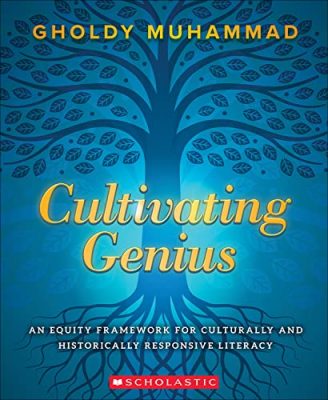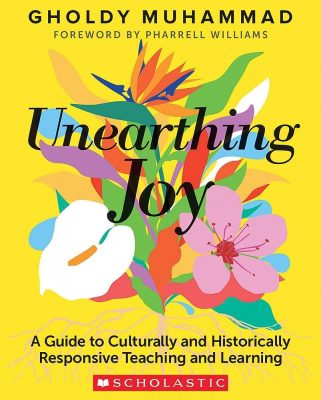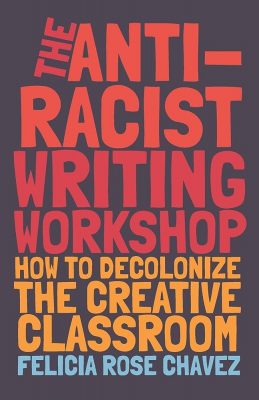
Welcome to the new school year, 2023–2024! As you get into the rhythm of the year, we hope you’re starting it’s starting well. At ECE English, we have a new graduate assistant, Adam McLain (he/they), who will work on a few initiatives to support you and your classrooms. Adam is in their second year as a graduate student and studies utopian and dystopian literature. He’s excited to learn more about teaching from all the outstanding teachers working with first-year writing in high school.
First and foremost is our upcoming conference on October 6. If you’re able to attend, please remember to register. Our conference theme is “Salutations, Congratulations, and Critiques: Praise and Optimism in the Writing Classroom.” Over the next three months, from September to November, our programming—blog posts, emails, outreach events like the October conference, and more—will focus on critiquing and feedback. Specifically, we’ll be thinking of how to integrate praise and optimism into our criticism and responses to and between students.

In our introduction to the conference, we pointed to four different texts—Gholdy Muhammad’s Cultivating Genius and Unearthing Joy; Deonna Smith’s Rooted in Joy; and Felicia Rose Chavez’s The Anti-Racist Writing Workshop. With our blog, we will focus on these texts and how the principles taught within can be utilized to bring praise and optimism into the first-year writing text. Each book applies anti-racist frameworks to think about how to support all students in the classroom.
Gholdy Muhammad, Cultivating Genius: An Equity Framework for Culturally and Historically Response Literacy
In Cultivating Genius, Gholdy Muhammad uses her background in studying 19th-century Black literacy societies to develop a framework called “historically responsive literacy,” which utilizes four key aspects—identity, skill, intelligence, and criticality—as a new catalyst to understanding if our course materials are supporting the whole student. Instead of making these into numbered standards, she places them as developmental focuses—how does this lesson develop the student’s identity, skill, intelligence, or criticality?
Gholdy Muhammad, Unearthing Joy: A Guide to Culturally and Historically Responsive Teaching and Learning
Muhammad adds to her four-aspect framework from Cultivating Genius with a fifth developmental axis: joy. How are we invoking, preserving, and sparking joy in the lives of our students? How are we helping them increase their joy in learning and living? With this follow-up, Muhammad focuses on the intricacies of genius, justice, and joy.

Deonna Smith, Rooted in Joy: Creating a Classroom Culture of Equity, Belonging, and Care
Joy can be a part of our work toward justice, Deonna Smith argues in this book that blends theory and praxis. Indeed, our work in front of the classroom and working with our students should be one with a foundation in joy. Smith reframes equity and belonging not as a checklist of things to do but as a happy place where we bring optimism into our classrooms, schools, and communities.
Felicia Rose Chavez, The Anti-Racist Writing Workshop: How to Decolonize the Creative Classroom
Felica Rose Chavez pulls on anti-racist and decolonial frameworks to offer a new perspective on what the writing classroom should look like. In it, she offers a writing classroom divorced from the hierarchy of tearing down writing (to build one’s writing up) and forwards a workshop that builds a community of like-minded writers, striving to improve self and the written word.

We invite you to read along with us in our blogging as we use these four books to support our three-month theme of critiquing and feedback. We’ll be starting with Cultivating Genius, then moving to Rooted in Joy, then The Anti-Racist Workshop, and concluding with Unearthing Joy. With each of our posts, we’ll focus on how principles taught within the books can support the first-year writing classroom. Emphasizing critique and feedback, we’ll see how Muhammad’s, Smith’s, and Chavez’s work relates to and engages with current theoretical conversations around critique and criticism. We’ll also discuss how their pedagogical approaches bolster our understanding of our multimodal, studio pedagogy, first-year writing classroom that engages with the five habits of practice—collecting and curating, engaging, contextualizing, theorizing, and circulating.
Critique and feedback—circulation, more broadly—is integral to the first-year writing curriculum through the University of Connecticut. Circulation is the habit of practice that emphasizes sharing work. Through peer review, class workshops, and turning in work, our students circulate their work in a classroom-insulated space. How might we invoke not only critical critique but also how might we create a space that engenders positive and optimistic engagement with our students? How do we create a space where our students and we respond optimistically to each others’ writings? How do we measure our praise with our critique? How do we make critical comments a positive instead of a negative experience?
With this focus on positivity and optimism, the hope is not to apply a thin layer of toxic positivity or faked optimism. We want to inspire real love and joy in our students’ approach to writing—and we hope to develop being able to do that more by integrating feedback into our courses. We hope this theme over the next few months will support your reflections on the feedback avenues within your classroom and how they inspire and bring happiness into students’ lives.
We hope this start to the year is going well and that you’ll join us for our conference in October.
We’d love to hear about any examples of bringing optimism, positivity, and joy into your critiquing process. Please email us about your experiences, and we can highlight them on the blog and share them with your fellow first-year writing teachers.
If you’re interested in advising the programming and support that ECE provides first-year writing teachers in our program, please fill out the form about joining our advisory board.
If you missed it, Jason Courtmanche in The Write Space wrote about teaching Asian American and Pacific Islander literature in his blog this week.
Please remember to upload your course materials on our website.